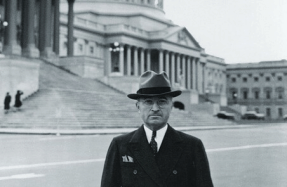THE FRENCH LINDBERGH


On December 7, 1936, French adventurer and aviator Jean Mermoz took off from Dakar, Senegal, in his four-engine Latécoère 300 flying boat for a flight across the South Atlantic to Brazil. It was to be his 24th crossing, but after a brief radio message, Croix du Sud and its veteran five-man crew vanished, never to be seen again.
Born on December 9, 1901, in the rustic village of Aubenton in northern France, Mermoz was a quiet and reserved youth who thought he might become a poet or perhaps an artist. Instead, he became a national hero famed for his pioneering airmail flights linking France to South America.
Advised by a family friend to go into aviation, Mermoz qualified as a military pilot in 1921. Once posted overseas to Syria, he distinguished himself by surviving a grueling four-day desert trek after a forced landing. The fiercely independent Mermoz, although a decorated pilot, disliked military life and was demobilized in March 1924.
Adrift in Paris and looking for steady work, Mermoz found himself frequenting soup kitchens. Airlines were hiring, but many other pilots were also scratching for jobs. Finally, Mermoz received a letter from Didier Daurat, Latécoère Airline’s director of operations, offering employment.
You’re reading a preview, subscribe to read more.
Start your free 30 days



